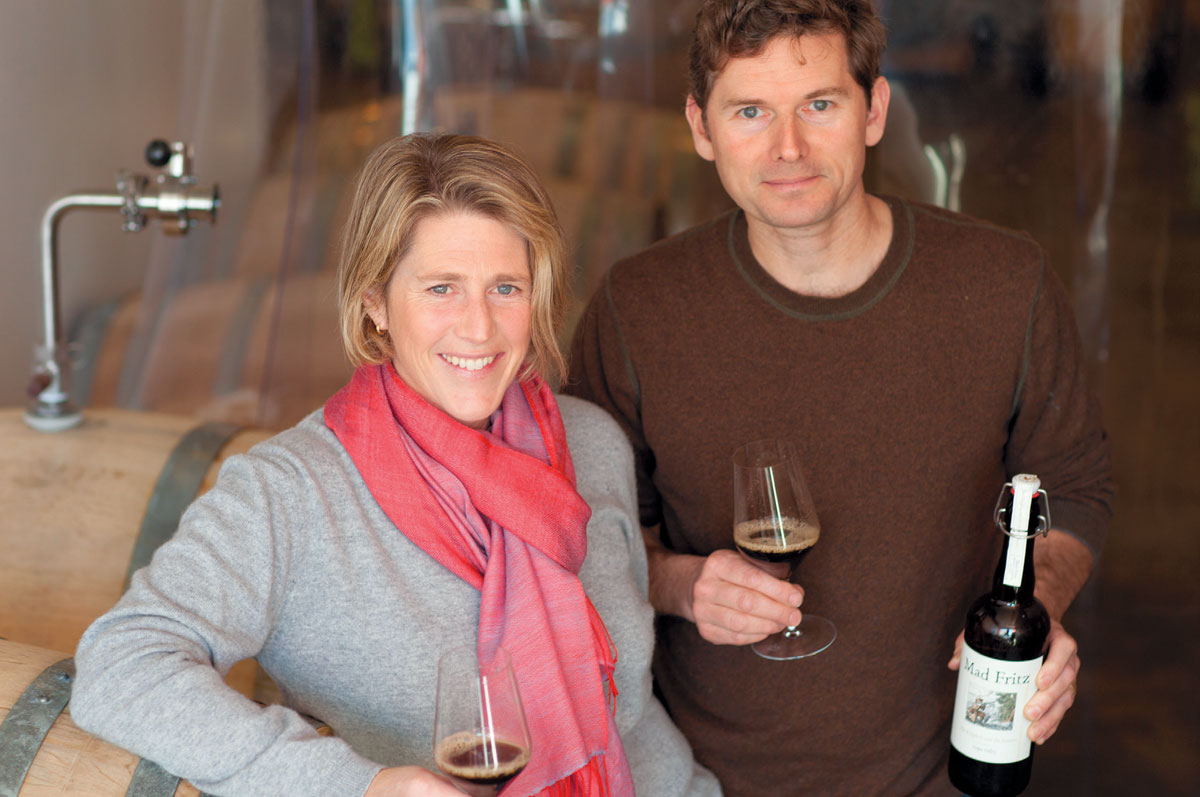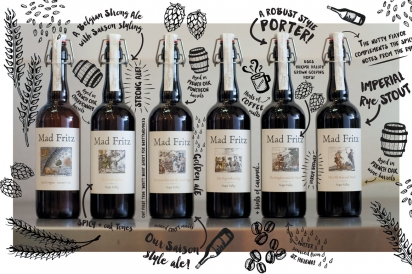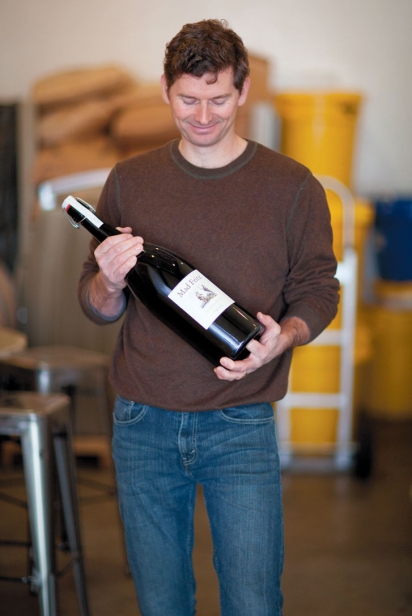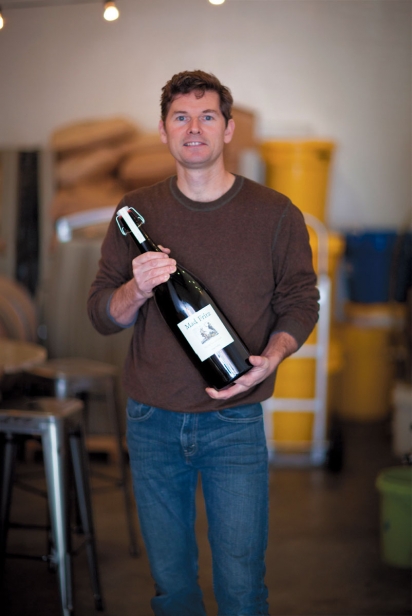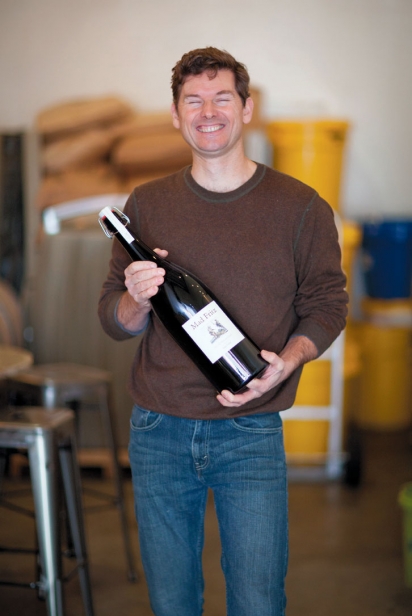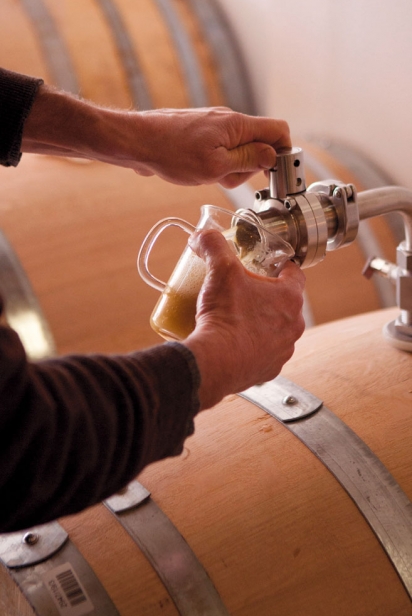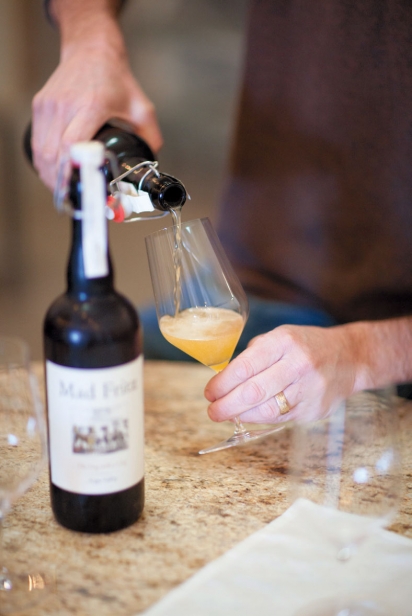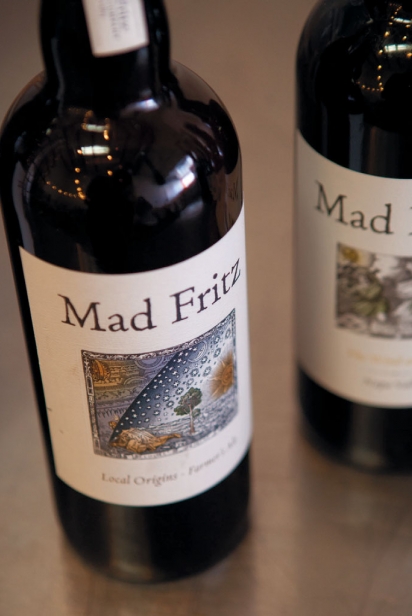Napa's Mad Fritz Brewery
A New Territory for Terroir
It is common lore in wine country that what every winemaker craves at the end of a long day among the vines, or in the winery, is not a glass of his or her finest wine, but an ice cold brew. As the saying goes, “It takes a lot of beer to make good wine.”
But what if a couple of winemakers, perhaps literally a couple, decided it wasn’t enough simply to enjoy someone else’s brew at the end of their day? What if they were driven to craft their own beers in the same painstaking way as they craft wine—with the utmost attention given to each and every ingredient, the blending and aging, much like the magic-cauldron-esque feel of coaxing grapes into wine? Would these truly craft ales, stouts, lagers, porters and barley wines, each bottle stamped with the bottling date and barrel number, tell the story of the place where the barley, hops and other botanicals were grown (in the case of the barley, often right down the road in St. Helena), and where the water sprung forth from the earth? Whether the oak shaped into the barrels in which they aged was French or Hungarian-grown?
Would the stories they tell on the palate be so compelling and delicious that they would grace the tables at Michelin three-starred fine dining restaurants The Restaurant at Meadowood and The French Laundry?
It’s true, this may sound like a fable written to teach children the value of putting your heart, as well as your head, into your vocation. And of the rewards that come from hard work and a willingness to take risks, even to fail.
But the only fables in the tale of Nile Zacherle and Whitney Fisher’s Mad Fritz Brewery are found on the labels of their artisan-crafted brews. Aesop’s Fables, to be exact. The fables are gorgeously illustrated on the front, and summarized briefly on the back, alongside the list of every ingredient in the bottle. This got us to thinking that if only pre-Prohibition brewers, distillers and winemakers had thought of offering up a healthy dose of moral tale along with their wares, that dark and thirsty 13-year period might never have blighted this country’s long and deep love affair with the “devil’s brew.”


